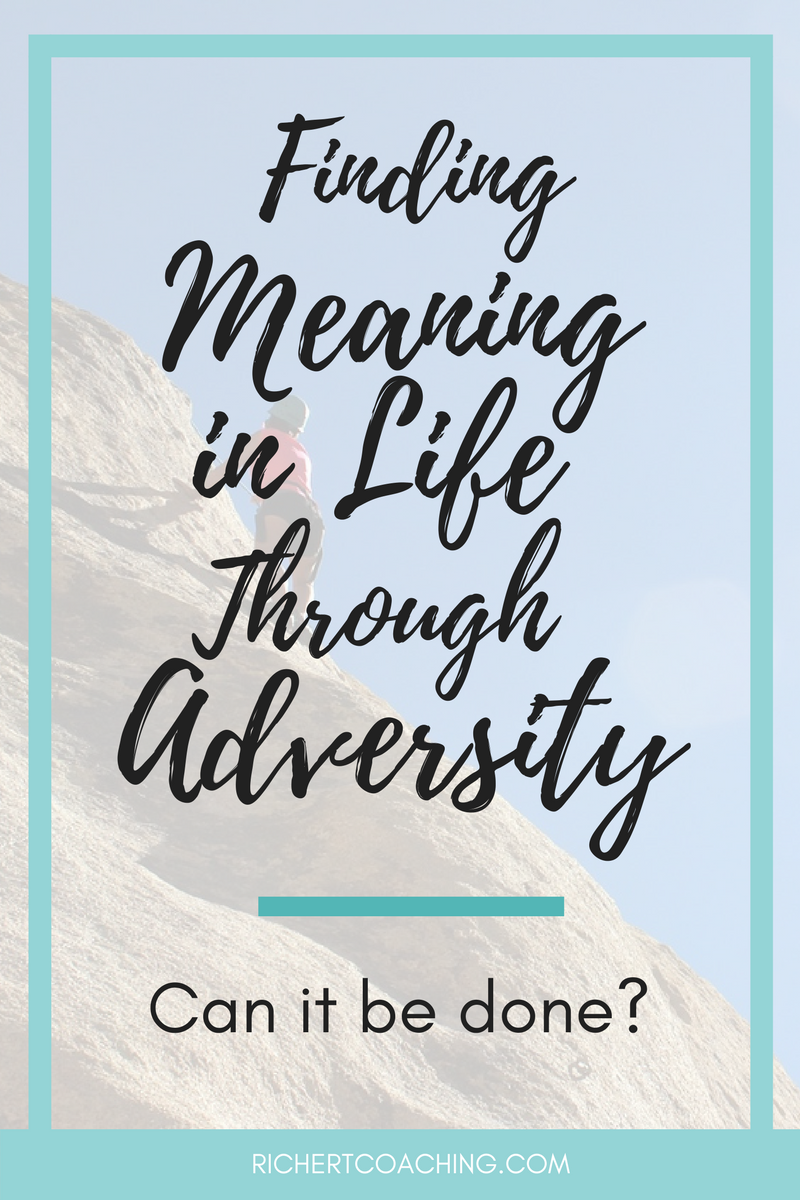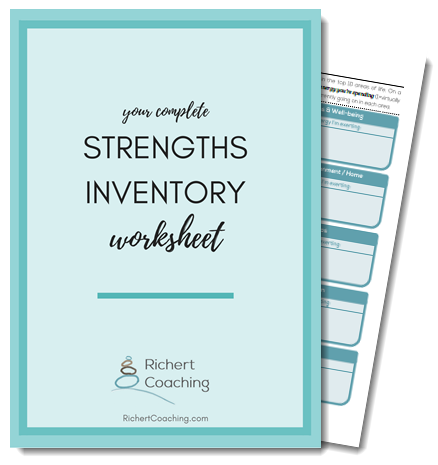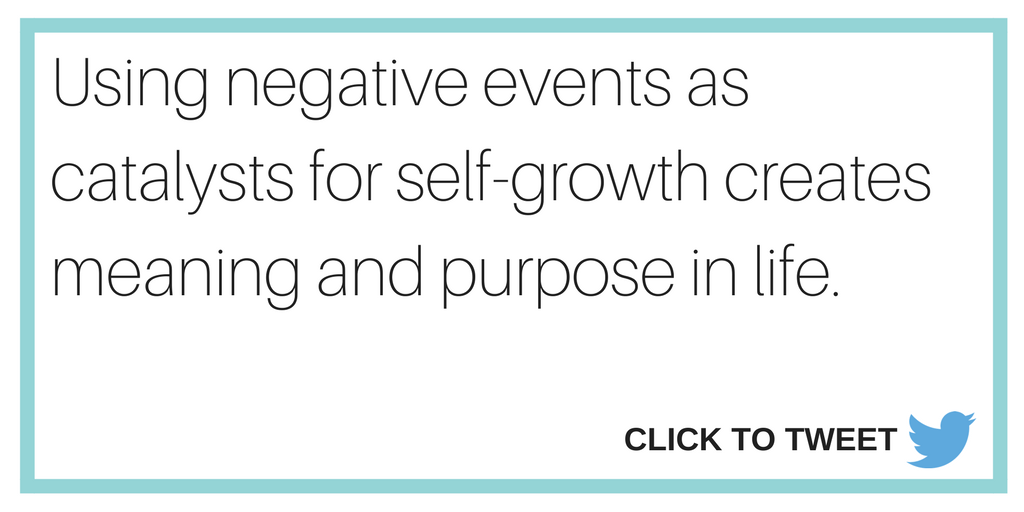
While a lot of people imagine the discovery of their purpose and meaning in life as an experience based in abundant happiness and as a result of living the "good life", negative life experiences can play a much more powerful role in cultivating a sense of meaningfulness in life.
In his classic autobiography, Man's Search for Meaning, Viktor Frankl tells the heart wrenching story of his life in a Nazi concentration camp during World War II, and he describes his discovery of meaning in life through the suffering he endured.
"If there is a meaning in life at all, then there must be a meaning in suffering. Suffering is an ineradicable part of life, even as fate and death. Without suffering and death human life cannot be complete."
To understand this better, let's dive into the details.
What is meaning?
Researchers generally agree upon three core elements that make up the theoretical construct of meaning: purpose, or the goals and dreams that one has in life, significance, the sense that one's life matters and has value and worth, and coherence, or the idea that one's life makes sense.
It's important, also, to distinguish meaning in life from meaning of life. The latter is a more metaphysical question that seeks a global understanding for the reasons life exists in contrast with trying to understand what makes life meaningful.
Purpose and significance seem like obvious requirements for understanding meaning in life, but coherence is an especially interesting topic that gets less than its fair share of attention.
Coherence, or sense-making, is one of our fundamental abilities as humans. We engage in this process countless times throughout the day without even thinking about it, and it's an evolutionary advantage that has helped us to thrive.
Deep within our brains, there is something called the Reticular Activating System (RAS). It exists at the intersection between the upper and lower regions of the brain and is connected to the brainstem--the oldest part of our brain in evolutionary terms. This area is responsible for many things, and almost all information enters our brain through this portal. It also happens to be responsible for making sense and order out of our life experiences.
The way that the RAS works is to file away and catalog experiences in order for them to make sense to you later. For example, when you see a good friend, and the friend smiles at you, your brain associates this interaction as being a positive event. Then, when you see someone else and they smile at you, your brain is triggered to accept that this is a friendly gesture, and you probably smile back--your brain can recognize that this is a good thing happening to you.
Likewise, our ancestors learned that sabre-tooth tigers were to be avoided, and they didn't need to re-learn this lesson each time they came in contact with the wild animal. This ability for our brain to generalize our experience works for a lot of our needs. It's the reason why we don't have to think and analyze every single experience in our day. We would never accomplish anything if that was how our brains worked. The RAS is what allows us to function as normal people.
What this means is that coherence provides us with a sense or awareness about the existence of reliable patterns in our environment.
And this is a major key in cultivating a sense of meaning in life.
Making Sense of Life
The way we make sense of our lives and who we are in the world is through what researchers call the Life Story. We are in a constant state of storytelling as a way of understanding the events and experiences that shape our lives.
This interpretive process of connecting experiences to our selves is called Autobiographical Reasoning. Put simply, it is the act of sense-making on a personal level.
What makes autobiographical reasoning interesting to researchers is that the process is especially triggered by the experience of negative events.
Think about this….if you pass the same coworker in the hallway each morning at work, and you both exchange smiles every day like clockwork, but then one day, your coworker approaches with a scowl--what stands out to you? The hundreds of times you've been met with a smile, or the one time you were confronted with a scowl?
When we experience something that doesn't fit into our sense-making patterns, we encounter a disorienting dilemma that acts as a springboard to engage in the process of autobiographical reasoning.
Who hasn't had the experience of wasting their emotional energy speculating on how to interpret someone else's behavior at some point? Maybe you've even obsessed over the details, running the episode over and over in your head trying to figure it out until you can't sleep at night?
That spent energy is the process of sense-making, and more importantly, an attempt to coherently incorporate what happened into your own life story.
Turning Lemons Into Lemonade
Jennifer Lilgendahl and Dan McAdams (both psychology professors at Haverford College and Northwestern University, respectively) found that there are two patterns of autobiographical reasoning within the life story that are related to self-growth and well-being1.
The first pattern is called positive processing. In essence, this measure evaluates your perspective on life--do you tend to interpret events positively, or negatively?
The second pattern is differentiated processing, and it gauges the variety of different ways that positive self-growth is represented throughout your life story.
The research shows that those individuals who relate their life experiences--even the negative ones--to their own self-growth in a variety of positive ways have higher levels of well-being.
For example, imagine a woman whose life story describes how the tragic loss of her beloved family dog led to her decision to pursue a career as a veterinarian, how watching her parents struggle during their marriage taught her the value of love and commitment, and how winning a cross-country race during high school helped her to see how much she was capable of achieving if she believed in herself.
While this type of life story describes a variety of positive and negative events, it also puts emphasis on the ways these experiences related to and contributed positively to the woman's sense of self.
In a separate study, researchers found that individuals whose life story narratives relate events and experiences to their sense of self with a high level of coherence also report the highest levels of meaning and purpose in life2.
Making sense of our life experiences and using negative events as catalysts for self-growth leads to a feeling of meaning and purpose in life.
But if you're thinking that you can simply turn your frown upside down and start seeing every experience in a positive light to cultivate a sense of meaning in life--think again.
The research is pretty clear on the fact that you must actually lean into the feelings of discomfort that come with negative experiences if you ever hope to experience true self-growth and reap the positive benefits of improved well-being. On average, researchers found that self-growth following negative events doesn't begin to occur until at least two years following the experience.
So give yourself time to reflect and learn from your experiences--both positive and negative--and then turn them into sources of inspiration, personal transformation, and meaningfulness in life.

Want to explore your own process of autobiographical reasoning? Download this free Strengths Inventory worksheet to get started on cultivating more meaning and purpose, and deepening your sense of well-being.
1Lilgendahl, J. P., & McAdams, D. P. (2011). Constructing stories of self‐growth: How individual differences in patterns of autobiographical reasoning relate to well‐being in midlife. Journal of Personality, 79(2), 391-428.
2Waters, T. E. A., & Fivush, R. (2015). Relations between narrative coherence, identity, and psychological well‐being in emerging adulthood. Journal of Personality, 83(4), 441-451.

RELATED POSTS
|
|
||||
| How to Keep Going When It Feels Like Everyone Else Has It All Figured Out | ____ | Meaningful Work: The Secret Recipe | ____ | Blog Archive |

**Some links shared in this blog may be affiliate links. If you purchase products through these links, I may receive a small commission at no cost to you from the retailer. I only recommend products that I personally use and love.





